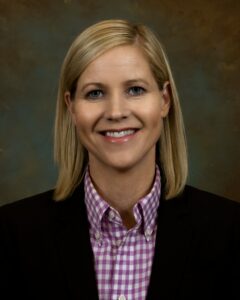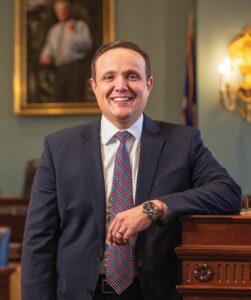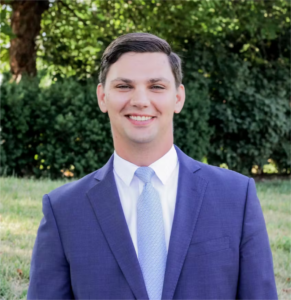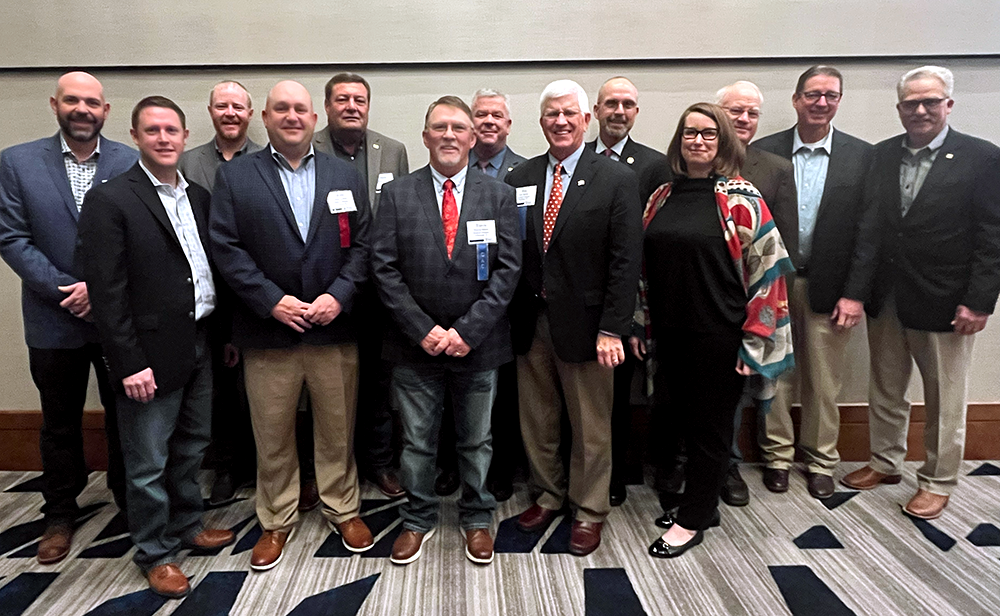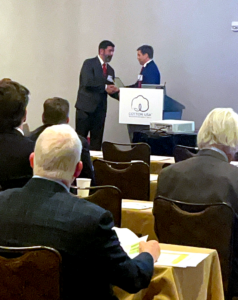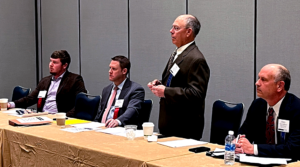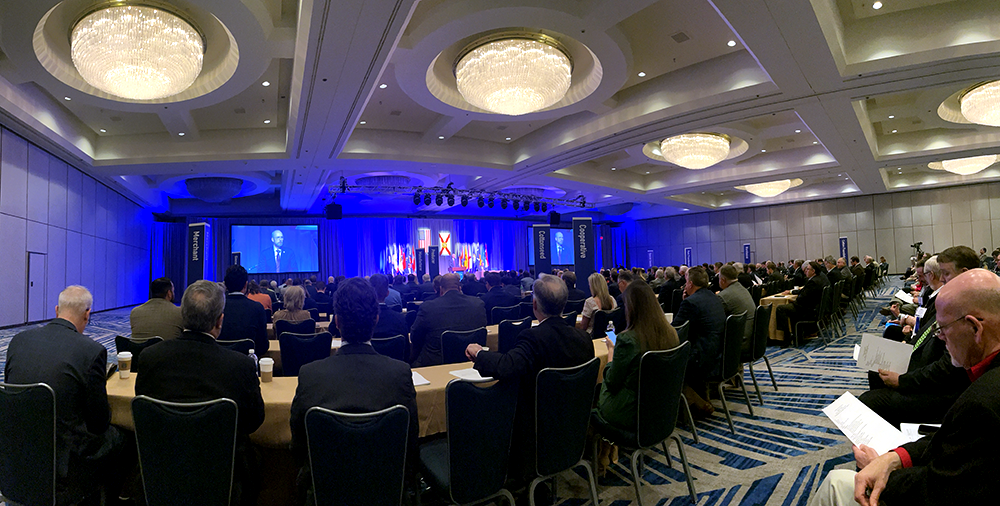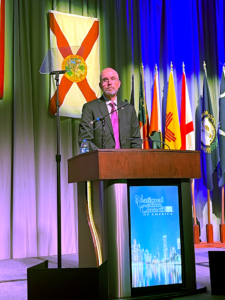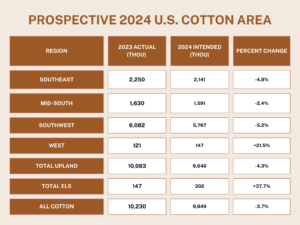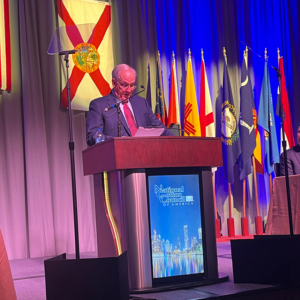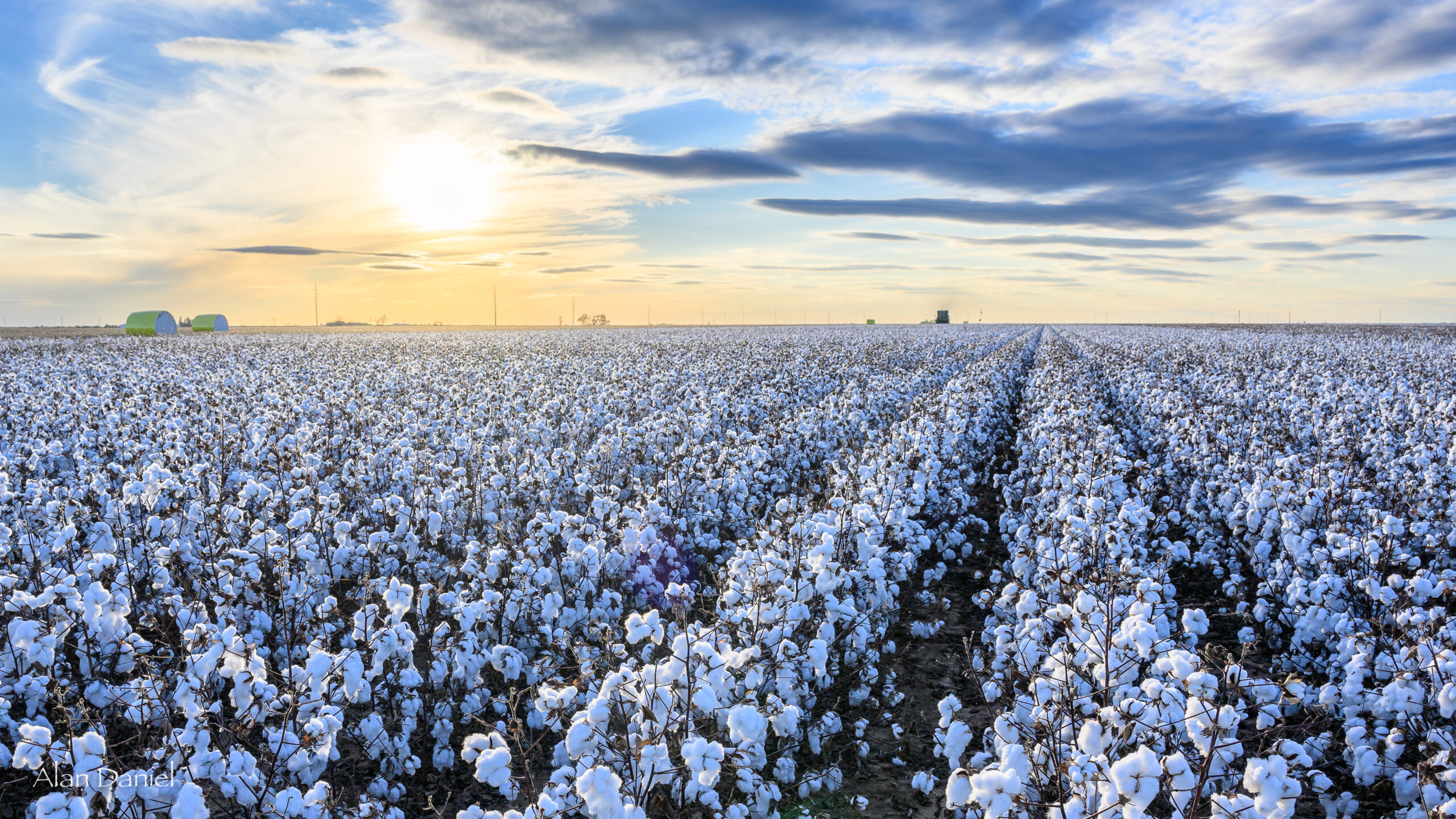
Welcome to the April 19, 2024 issue of Cotton News, a service provided by Plains Cotton Growers Inc. for the cotton industry in the Texas High Plains and beyond.

Talk to the 90%
It’s Time for Conservationists to Start Screaming from the Rooftops
By Kara Bishop
In preparation for Earth Day, which is Monday April 22, I thought I would get on my soapbox for this week’s newsletter.
We have heard it time and time again: farmers and ranchers are the original conservationists. Farmers are stewards of the land. Farmers want the environment to thrive so they can pass their operation down to the next generation. Farmers engage in agronomic practices that are beneficial to the earth and were doing it long before it was federally mandated.
The key word in the preceding paragraph is “we.”
WE are in agriculture. WE understand the mechanics of farming and ranching. WE live here. WE are in the soil day in and day out. WE talk to farmers from other areas and understand geographic diversity requires different practices.
It’s not about making sure WE know these things. It’s about telling THEM — the consumers; the decision makers who determine demand for our product.
American farm families represent 2% of the U.S. population. That’s it. And they feed and clothe the other 98%. According to the U.S. Department of Agriculture, roughly 10% of the total U.S. population is involved in agriculture in some way. That means that 90% of U.S. residents need to be communicated with regarding their food and fiber.
We talk to each other and share cool sustainability facts and agronomic practices with one another. Obviously, we need to communicate and share these things to advance our industry, but we also need to share these same stories with those who aren’t involved in agriculture.
Because they are the ones making the purchasing decisions. And as far as you and I are concerned, we need them to choose cotton. Not just for our industry, but because it’s best for the environment. Choosing cotton clothing and household items contributes to saving the planet.
Most of the people making the purchasing decisions for their clothes care about the planet — especially younger generations. Though many of the “earth conscious,” are ironically wearing 100% polyester active wear. And that’s on us.
Don’t get me wrong, I know we’re fighting an uphill battle with the price difference between cotton and synthetic fibers, but we’re making it harder by feeding the agricultural stigma on “sustainability.”
We tend to resist the conversation on sustainability. And I get it. It’s hard to want to engage in that conversation when you’ve been practicing sustainability for years. It’s hard to engage when false narratives are swirling around you about farming and ranching harming the planet rather than preserving it. It’s hard to engage in that conversation when retailers and brands preach sustainability, yet don’t provide a variety of affordable cotton options in stores.
We all know that if we don’t tell our story, someone else will. So many earth conscious “experts” still discuss “dirty cotton” and how it’s harming both farmers and consumers. While the cotton industry is fighting back on this, it’s the squeaky wheel that gets the grease. And, let’s face it, more voices are squeaking harder about you and your practices that they know nothing about.
I’ll be honest — I never checked my clothing labels before I took this job. It never even occurred to me that synthetics might be harming the oceans. And I have lived my entire life in cotton country.
We’ve got to be better about getting the word out. We’ve all got to start pounding hard on that drum. It needs to be in every conversation we have with those who aren’t familiar with what we do. We assume that the people living among us already know these things, but I promise you they don’t. I didn’t.
Here’s the facts from Cotton Incorporated:
- 14 million metric tons of plastic are released into the oceans every year.
- Every time clothes are washed, microfibers enter our waterways. These fibers are too small to be completely filtered by wastewater treatment equipment.
- Cotton breaks down in water in just over three months, which is a rate similar to oak leaves.
- However, synthetic fibers take 20 to 200 years to break down in the same environment.
- Fibers from synthetic clothing make up 35% of the microplastics in our oceans.
- By 2050, there may be more plastic in our oceans than fish.
- 81% of tested water samples from major metro areas around the world were contaminated with plastic fibers.
- This microplastic waste affects everything in the ecosystem — including what we eat.
- The average person consumes approximately a credit card worth of plastic every week.
This is the narrative that needs to be shouted — on Earth Day and every day. I didn’t share this just to share it. Tell your friends.
We all know if consumers demand more cotton, then more cotton products end up in the supply. One producer told me just a few days ago that he can’t find 100% cotton socks in stores. I found that hard to believe, so I conducted my own experiment.
I went to Walmart and JCPenney and looked at their sock selection. At JCPenney, they had some socks that contained upwards of 71% cotton, but the majority of socks were polyester dominant. Walmart had very little cotton in their socks. In the women’s sock aisle, there were only a handful of packages that contained cotton and the most was 50%. Most of the socks were 85% polyester and 15% recycled polyester.
While cotton blends are great, and we’re glad they’re including cotton in their products, I was really surprised that cotton doesn’t own the market on socks. Seems like a no-brainer to me with the odor control and cooling effects that cotton provides.
The real kicker is some of the Hanes brand socks had the following tagline on the back: Responsible. Sustainable. Comfortable. On the same back of that package were the fabric contents: 49% polyester, 43% cotton, 6% rayon, 2% spandex. Is that considered sustainable apparel? If it takes 20 to 200 years for half of the sock to break down, assuming it ended up in the ocean, is that truly responsible and sustainable?
 Another industry representative commented in a meeting that he was at the 2024 Master’s Tournament at Augusta National Golf Club where there were 105 golf shirts for sale. Three of the 105 were 100% cotton and two were cotton blends. The 100 shirts remaining? All synthetic.
Another industry representative commented in a meeting that he was at the 2024 Master’s Tournament at Augusta National Golf Club where there were 105 golf shirts for sale. Three of the 105 were 100% cotton and two were cotton blends. The 100 shirts remaining? All synthetic.
We have great research at our disposal. We have the facts on our side. Let’s work together and share cotton’s sustainability story — for the good of the planet and the cotton industry. Buy cotton. It’s the sustainable fabric of our life and planet!
Upcoming Events
Plains Cotton Growers Advisory Group Meeting
Date: May 10, 2024
Location: PCG Conference Room, Lubbock, Texas
Plains Cotton Growers Advisory Group Meeting
Date: May 24, 2024
Location: PCG Conference Room, Lubbock, Texas
Plains Cotton Growers Advisory Group Meeting
Date: June 7, 2024
Location: PCG Conference Room, Lubbock, Texas
For a full list of upcoming events, see the Events Page.
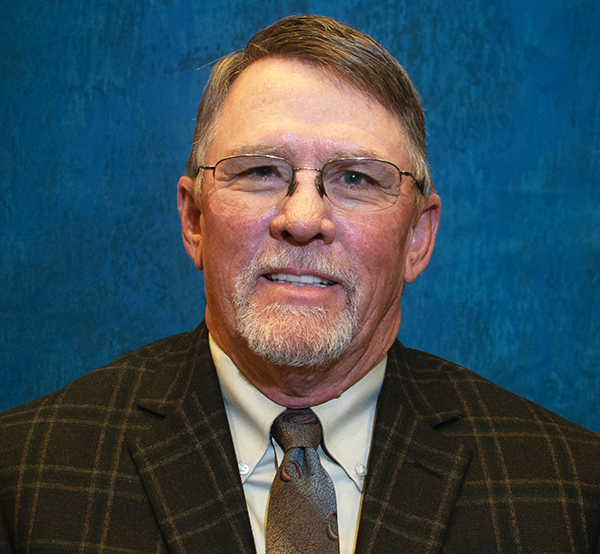

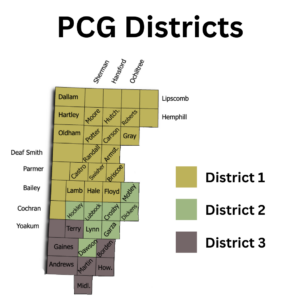
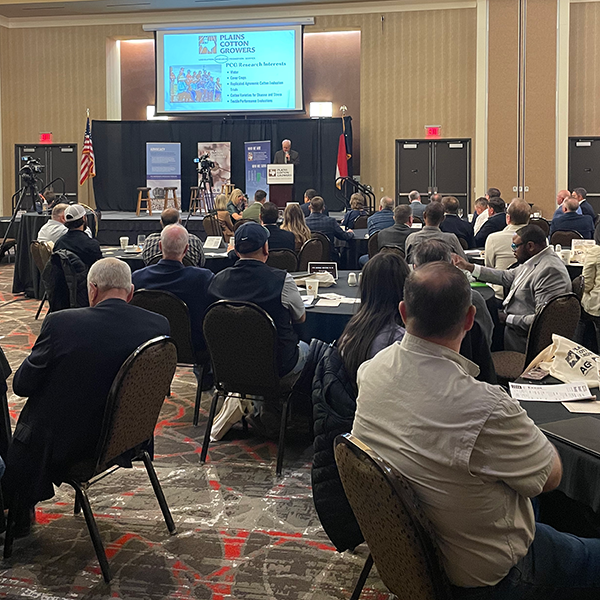

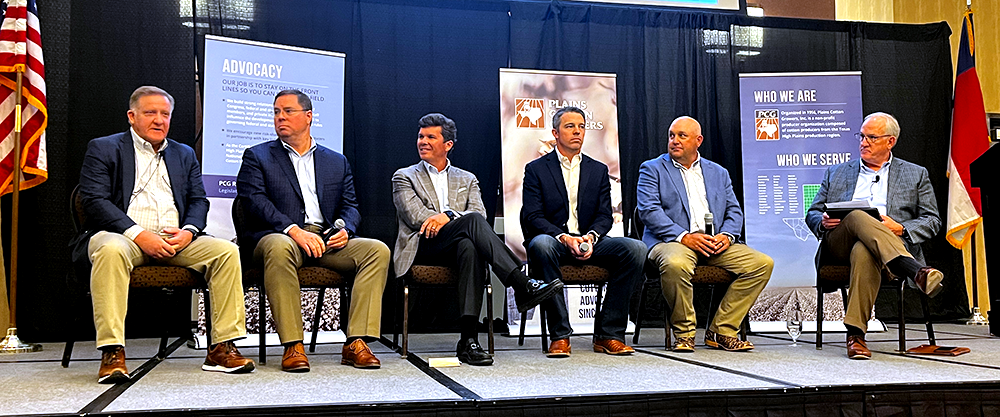
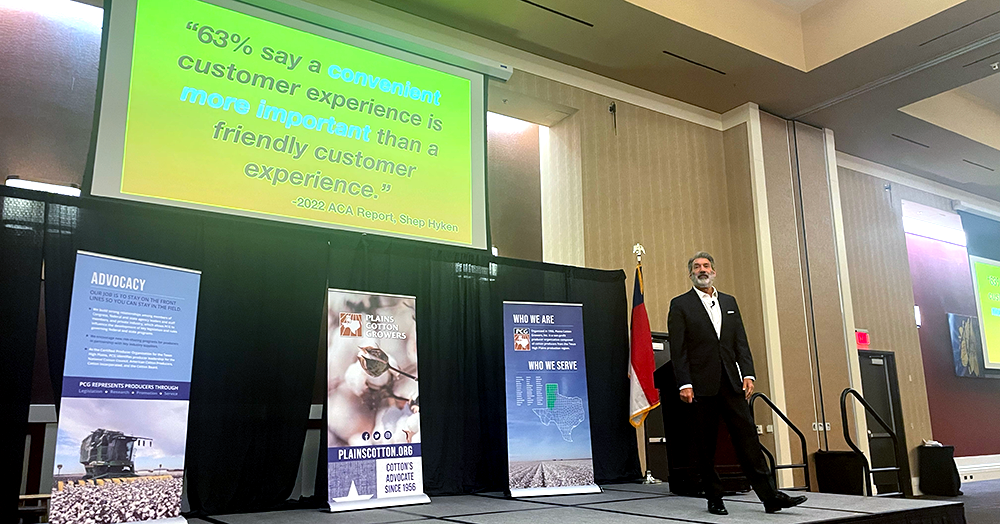
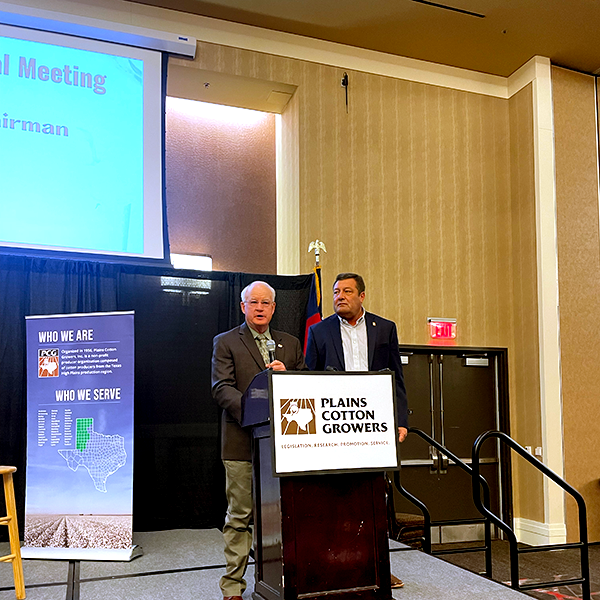
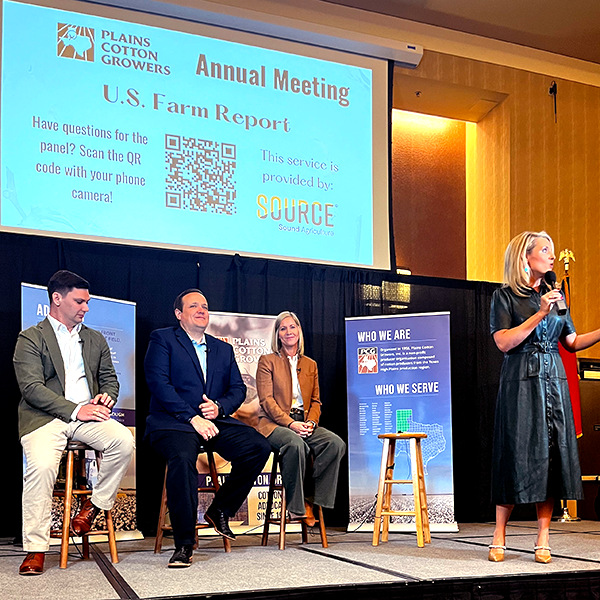
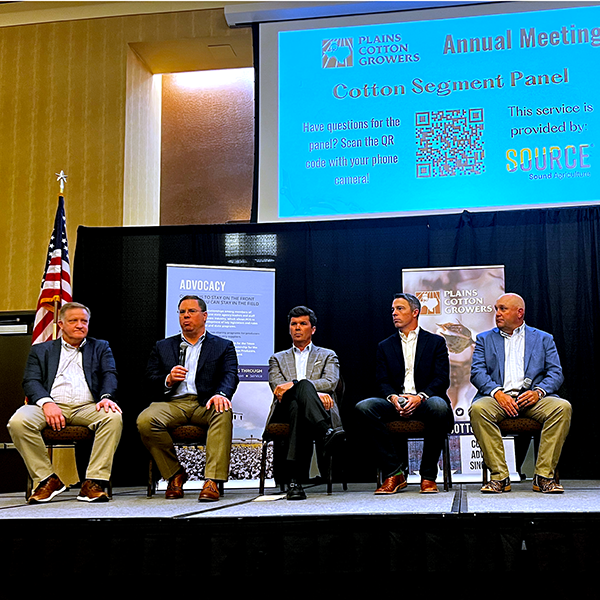
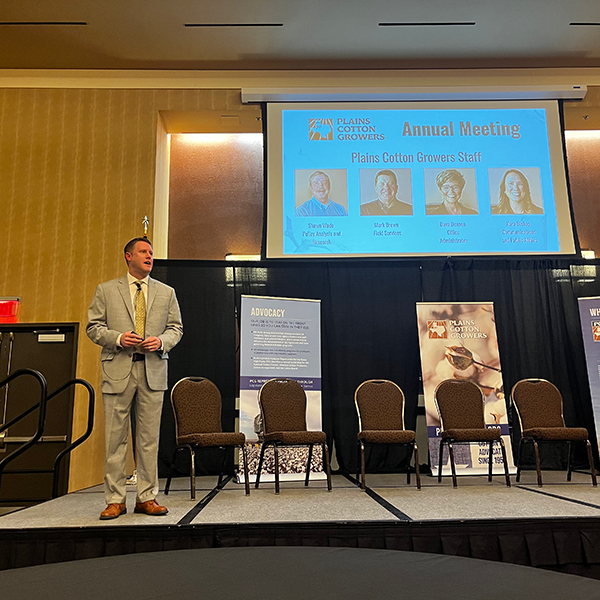
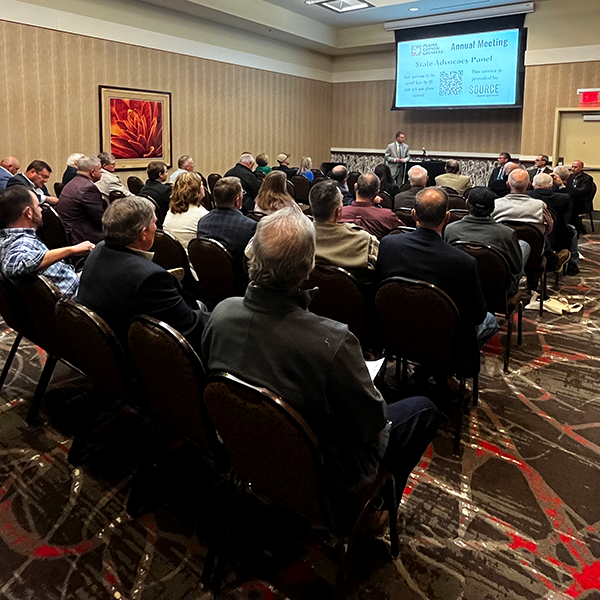
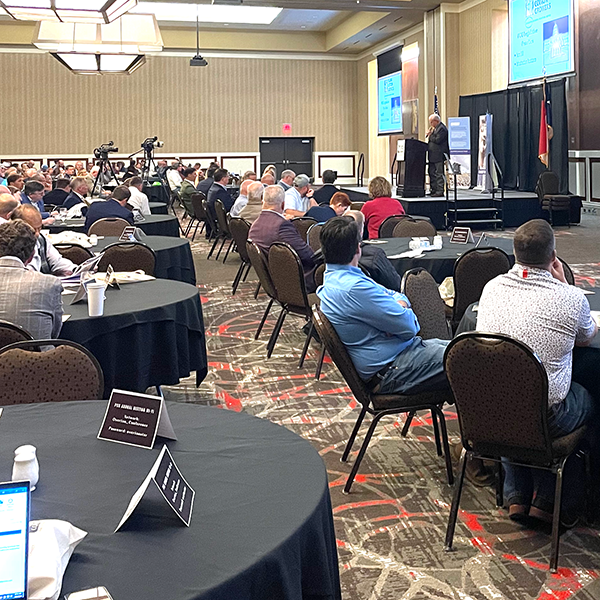
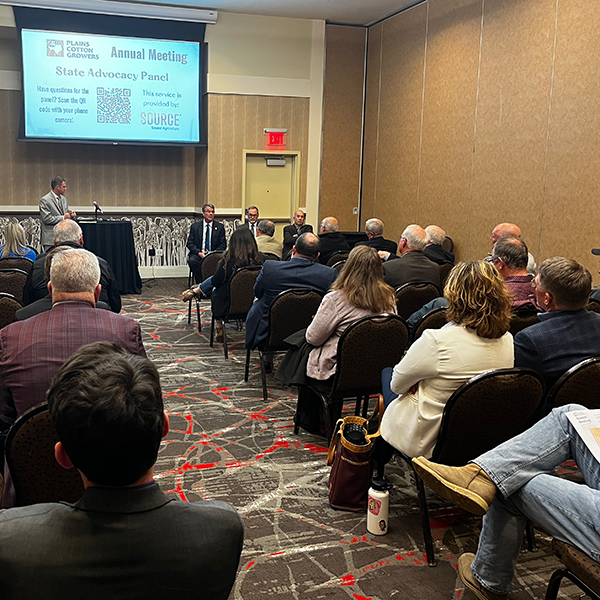
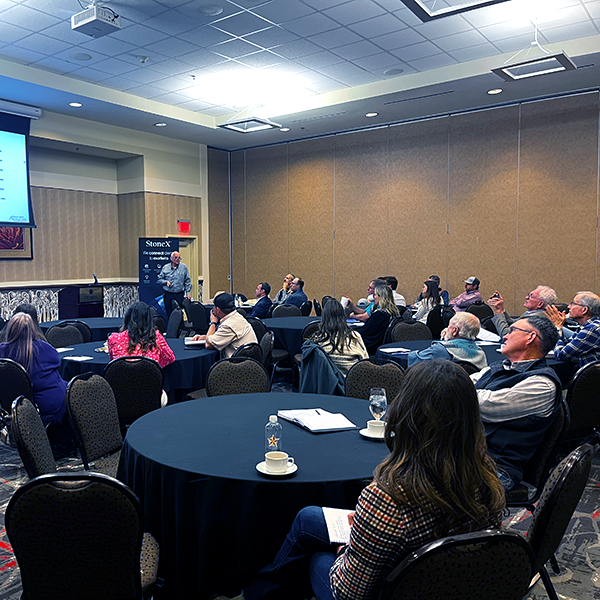
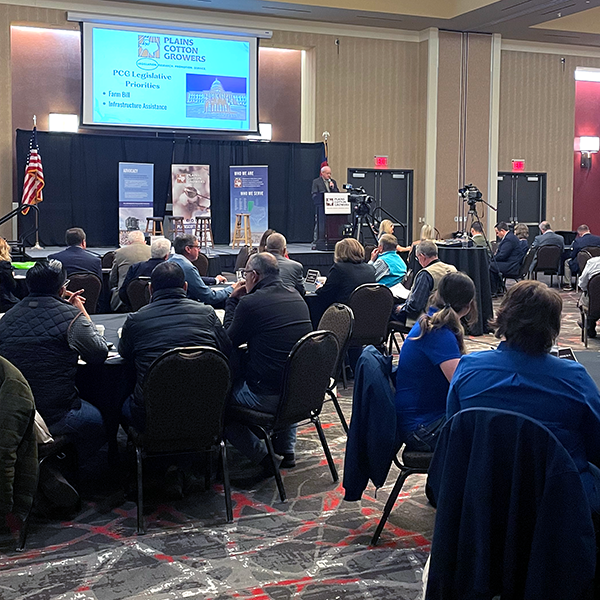
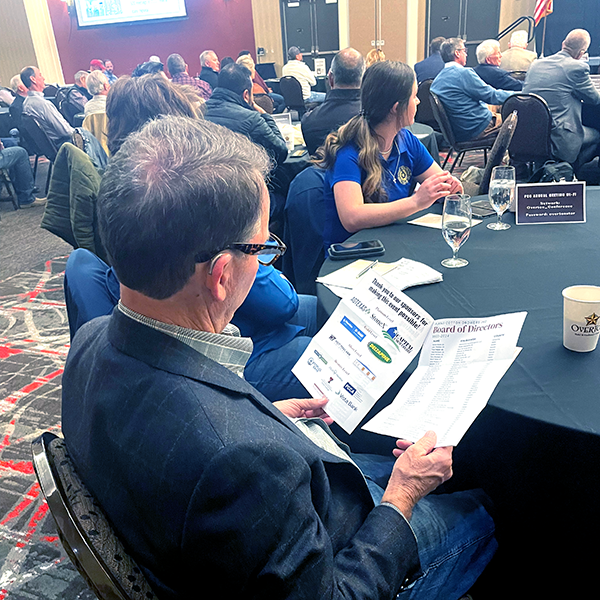



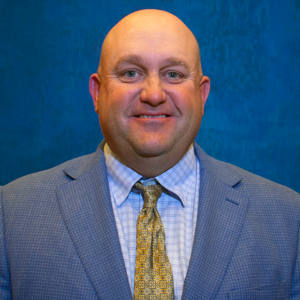

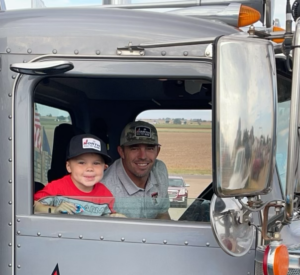
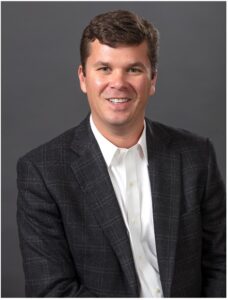 partnership in The Macon Edwards Company, a Washington based government affairs firm. He has engaged in agricultural financial services through his participation in the creation and opening of Covenant Bank. Allen is an active stakeholder in a vertically integrated agribusiness encompassing a production farming operation, ground and areal application services, seed and crop protection retail, ginning, an extensive grain storage and shipping operation, and agricultural real estate holdings in Mississippi. Additionally, Allen is a partner in Miss Cal Orchards, a California based almond farm.
partnership in The Macon Edwards Company, a Washington based government affairs firm. He has engaged in agricultural financial services through his participation in the creation and opening of Covenant Bank. Allen is an active stakeholder in a vertically integrated agribusiness encompassing a production farming operation, ground and areal application services, seed and crop protection retail, ginning, an extensive grain storage and shipping operation, and agricultural real estate holdings in Mississippi. Additionally, Allen is a partner in Miss Cal Orchards, a California based almond farm.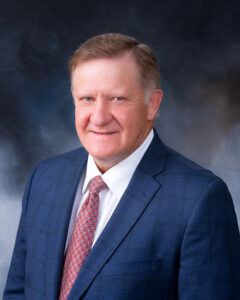
 He has worked at Farmers Cooperative Compress since 2005 and took on the role as CEO in July of 2020. Eric and his wife Christine have three children, Sarah, Ben, and Hugh, and two international students from China that have become a part of the family, Chen and Eric. Christine is the Superintendent of Catholic Schools for the Dioceses of Lubbock and Amarillo. Sarah earned her food science degree from Texas Tech University and now works as a business development manager for HEB’s seafood category. Their second, Ben, is an Officer in the US Air Force and is currently in pilot training. Their youngest, Hugh, attends Texas A&M University and is studying Agricultural Economics.
He has worked at Farmers Cooperative Compress since 2005 and took on the role as CEO in July of 2020. Eric and his wife Christine have three children, Sarah, Ben, and Hugh, and two international students from China that have become a part of the family, Chen and Eric. Christine is the Superintendent of Catholic Schools for the Dioceses of Lubbock and Amarillo. Sarah earned her food science degree from Texas Tech University and now works as a business development manager for HEB’s seafood category. Their second, Ben, is an Officer in the US Air Force and is currently in pilot training. Their youngest, Hugh, attends Texas A&M University and is studying Agricultural Economics. Texas, Oklahoma, and Kansas to textile mills worldwide.
Texas, Oklahoma, and Kansas to textile mills worldwide.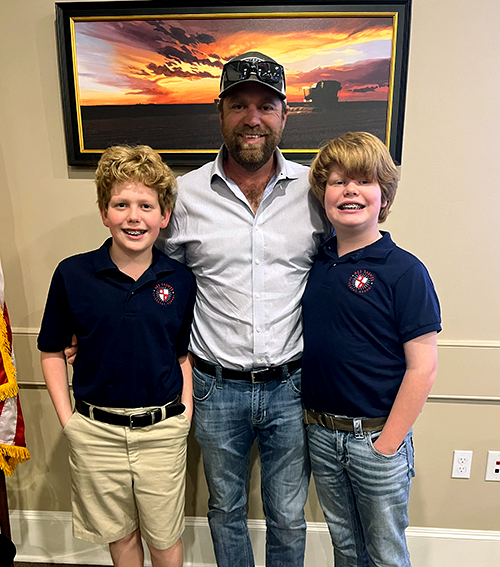
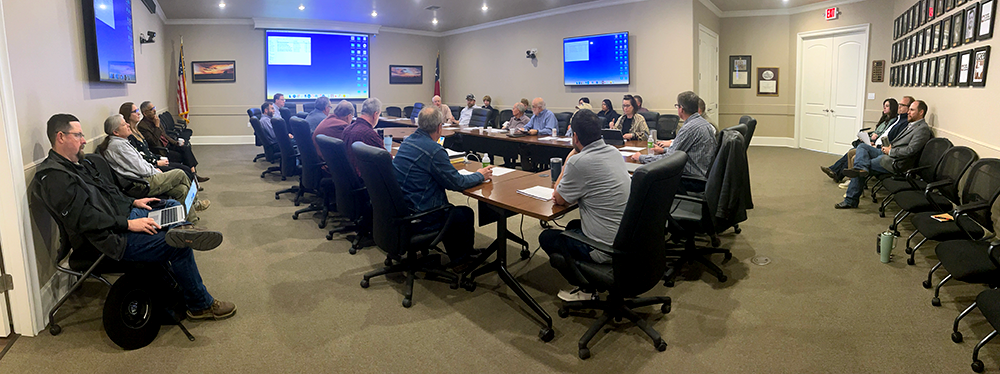
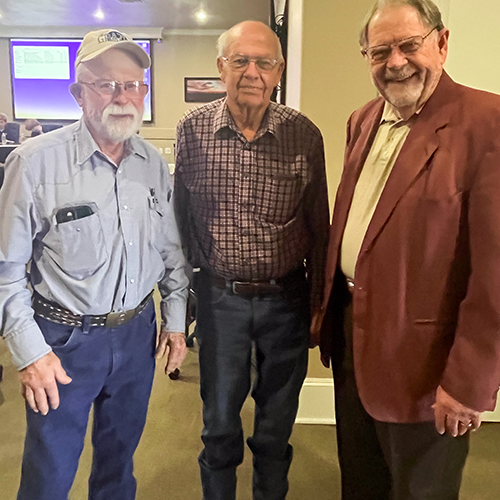
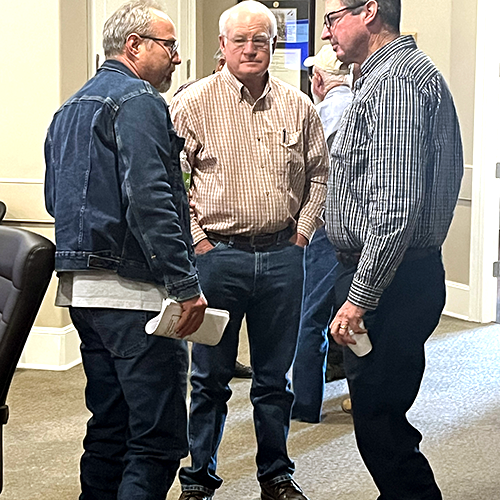
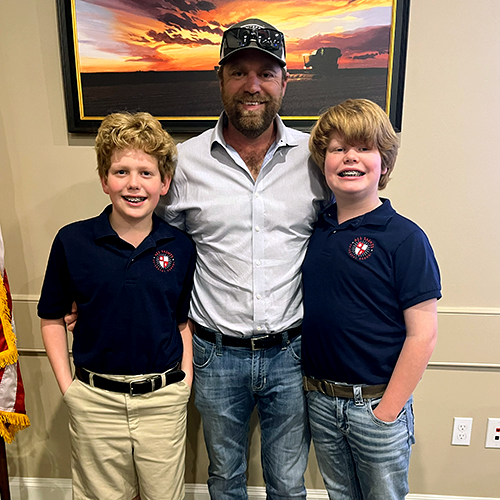
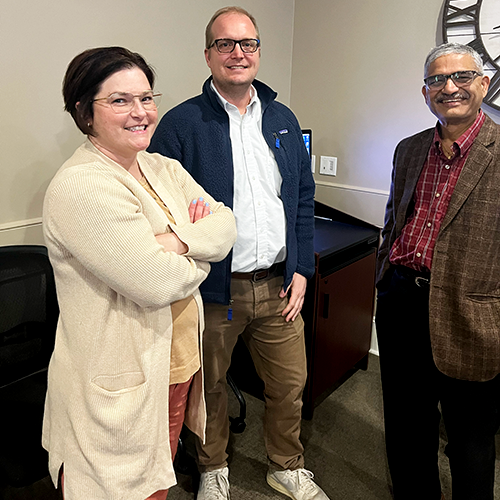
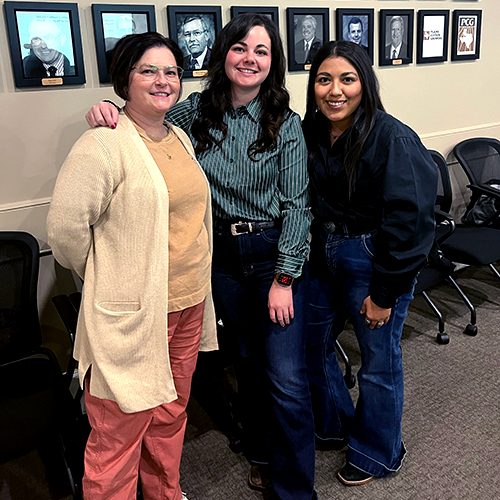
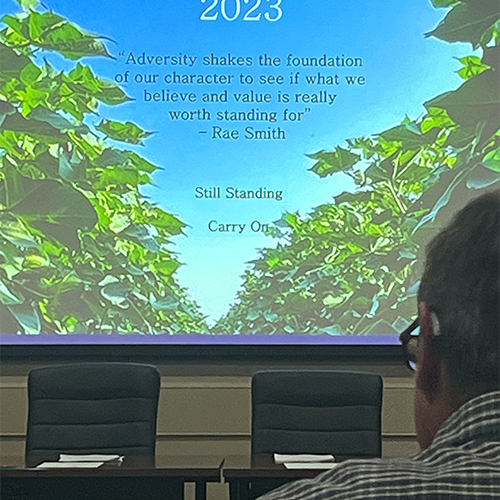
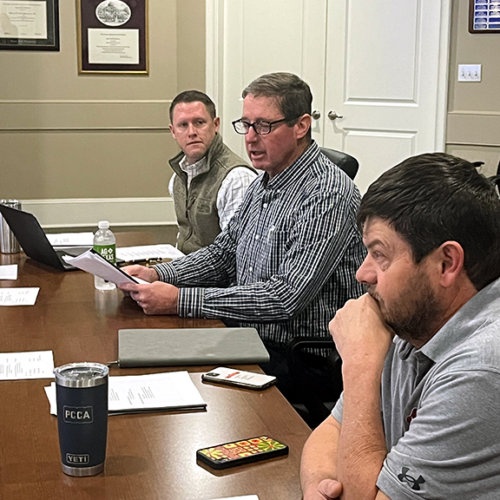
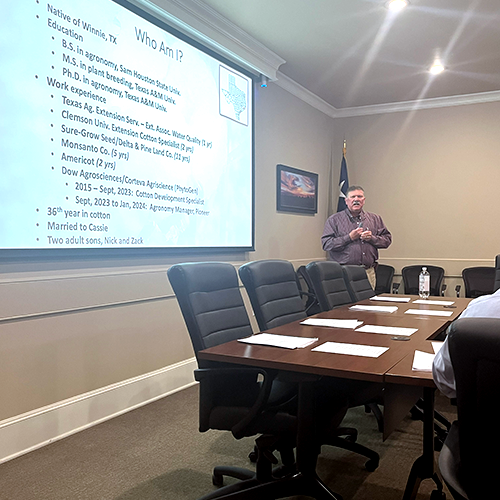



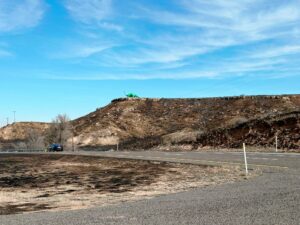
 Plains Cotton Growers is praying for all those affected by the Panhandle wildfires. And one day, we won’t endure tragedy as Isaiah says:
Plains Cotton Growers is praying for all those affected by the Panhandle wildfires. And one day, we won’t endure tragedy as Isaiah says:
























 This year, PCG will host the U.S. Farm Report at its annual meeting. U.S. Farm Report Host Tyne Morgan comes back to the PCG stage with three renowned, heavy-hitter economists: Jody Campiche, Bart Fischer and Brad Weddelman.
This year, PCG will host the U.S. Farm Report at its annual meeting. U.S. Farm Report Host Tyne Morgan comes back to the PCG stage with three renowned, heavy-hitter economists: Jody Campiche, Bart Fischer and Brad Weddelman.